GloCal Fellows 2014-2015
Arthur Mpimbaza, Infectious Diseases Research Collaboration (IDRC)
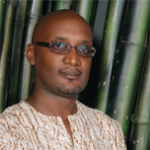 Arthur Mpimbaza, MBChB, MMed, MSc, graduated from Makerere University Medical School in 2000 with a Bachelors degree in medicine and surgery, and to date has been involved in clinical research, primarily related to malaria, working with the Makerere University-UCSF malaria research collaboration. During this period, he attained further training with a Masters of Medicine in Pediatrics (equivalent to a US medical residency) and Masters of Science in Infectious Diseases. It is through this collaboration that he has been privileged to work with and be mentored by distinguished scientists, specifically Prof Philip J Rosenthal (UCSF), Dr Sarah Staedke (LSHTM), Prof Grant Dorsey (UCSF) and Prof Grace Ndeezi. In 2011, he attained a faculty position as Assistant Lecturer at the Child Health Development Centre, Makerere University-College of Health Sciences. To acquire more skills and advance his career in research, he enrolled for a PhD in Health Sciences in 2012, at the Clinical Epidemiology Unit, Makerere University-College of Health Sciences.
Arthur Mpimbaza, MBChB, MMed, MSc, graduated from Makerere University Medical School in 2000 with a Bachelors degree in medicine and surgery, and to date has been involved in clinical research, primarily related to malaria, working with the Makerere University-UCSF malaria research collaboration. During this period, he attained further training with a Masters of Medicine in Pediatrics (equivalent to a US medical residency) and Masters of Science in Infectious Diseases. It is through this collaboration that he has been privileged to work with and be mentored by distinguished scientists, specifically Prof Philip J Rosenthal (UCSF), Dr Sarah Staedke (LSHTM), Prof Grant Dorsey (UCSF) and Prof Grace Ndeezi. In 2011, he attained a faculty position as Assistant Lecturer at the Child Health Development Centre, Makerere University-College of Health Sciences. To acquire more skills and advance his career in research, he enrolled for a PhD in Health Sciences in 2012, at the Clinical Epidemiology Unit, Makerere University-College of Health Sciences.
Project
Determinants of disease severity among hospitalized children with severe malaria in Uganda
Dr. Mpimbaza's PhD thesis is centered on understanding the determinants of disease severity among children infected with P. falciparum. This project will directly address his career goals, in working to identify factors that contribute to severe malaria upon which public health programs can intervene. In his first aim, Dr. Mpimbaza will test the highly plausible hypothesis that delayed access to care is a major contributor to progression to severe malaria, and determine factors that delay access to care. It is anticipated that specific factors amenable to simple public health interventions will be identified. In his second aim, Dr. Mpimbaza will take a quite different approach, analyzing associations between host genetic polymorphisms and progression to severe disease, offering a different potential means of intervention, e.g. identifying and appropriately managing individuals at particular risk of severe malaria. Dr. Mpimbaza's PhD thesis will provide much needed clinic-epidemiological information on malaria as a life threatening disease, increasing understanding of underlying causes of disease severity and related deaths that are amendable to modification, aiding in the development of optimal strategies for policy formulation, planning, monitoring and evaluation of disease-specific interventions.
Mentors: Dr. Philip Rosenthal (UCSF), Dr. Charles Karamagi (MU), Dr. Grace Ndeezi (MU)
Chongguang Yang, Fudan University
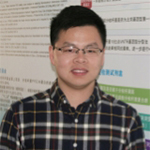 Chongguang Yang, PhD, is a post-doctoral fellow whose academic interests focus on the transmission and control of tuberculosis (TB) in China. Dr. Yang received his PhD in Pathogenic Microbiology from Fudan University in 2013. For his dissertation research project, Dr. Yang used molecular epidemiologic methods to estimate the extent of and risk factors for the transmission of the pathogen, M. tuberculosis, in vulnerable populations including HIV-positive patients and rural-to-urban migrants, and had seven relevant publications. He also worked on the implementation of more accurate and rapid diagnostic tools for early TB case detection, which will highly increase the efficiency of TB control in China. His recent work is examining the social network of ongoing transmission of multi-drug resistant (MDR) TB in Shanghai, with using of whole genome sequencing and contact investigation approaches. His career inspiration is to work with an international organization serving developing countries to improve human health, particularly to address challenges on reducing TB burden and contribute to the ultimate elimination of TB worldwide.
Chongguang Yang, PhD, is a post-doctoral fellow whose academic interests focus on the transmission and control of tuberculosis (TB) in China. Dr. Yang received his PhD in Pathogenic Microbiology from Fudan University in 2013. For his dissertation research project, Dr. Yang used molecular epidemiologic methods to estimate the extent of and risk factors for the transmission of the pathogen, M. tuberculosis, in vulnerable populations including HIV-positive patients and rural-to-urban migrants, and had seven relevant publications. He also worked on the implementation of more accurate and rapid diagnostic tools for early TB case detection, which will highly increase the efficiency of TB control in China. His recent work is examining the social network of ongoing transmission of multi-drug resistant (MDR) TB in Shanghai, with using of whole genome sequencing and contact investigation approaches. His career inspiration is to work with an international organization serving developing countries to improve human health, particularly to address challenges on reducing TB burden and contribute to the ultimate elimination of TB worldwide.
Project
Patient costs of tuberculosis services among the rural-to-urban migrant population in China: Impacts on diagnosis, treatment and transmission
The increase of the rural-to-urban migrant population size has become one of the major threats for TB control in China. Studies have shown that TB patients among migrants had less access to tuberculosis diagnosis and healthcare service, and lower odds of treatment success. Dr. Yang's GloCal project focuses on patient costs of tuberculosis services among the rural-to-urban migrant population in Shanghai, with aims (1) to quantify patient and household costs during TB episodes among urban migrants and local residents, and (2) to determine the effects of patient costs on delays in diagnosis, treatment success, and transmission of M. tuberculosis. The results of this project will provide comprehensive information to the local CDC on implementing better interventions to improve treatment outcomes and to address the challenge of TB control for the migrant populations.
Mentors: Dr. Kathryn DeRiemer (UCD), Dr. Qian Gao (Fudan University), Dr. Heejung Bang (UCD)
David Heller, UC San Francisco
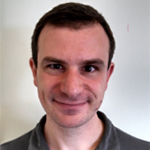 David Heller, MD, MPH, is a Primary Care Research Fellow in the Department of Medicine at UCSF. He is a practicing internist with academic interests in global and domestic primary care delivery; incorporation of evidence into health policymaking; and the US role in global health policy. He has done policy analysis at the US Department of Agriculture and World Health Organization, completed an internship in the US Senate under Joseph Biden, and conducted public health research in Bangladesh, Pakistan, and Uganda. His writings have appeared in the San Francisco Chronicle and in Lancet editorial series. Dr. Heller holds an A.B. degree from Brown University, an M.P.H. degree from the Johns Hopkins Bloomberg School of Public Health, and an M.D. degree from the University of California, San Francisco. He completed clinical training in internal medicine on the Osler Housestaff Program at Johns Hopkins Hospital.
David Heller, MD, MPH, is a Primary Care Research Fellow in the Department of Medicine at UCSF. He is a practicing internist with academic interests in global and domestic primary care delivery; incorporation of evidence into health policymaking; and the US role in global health policy. He has done policy analysis at the US Department of Agriculture and World Health Organization, completed an internship in the US Senate under Joseph Biden, and conducted public health research in Bangladesh, Pakistan, and Uganda. His writings have appeared in the San Francisco Chronicle and in Lancet editorial series. Dr. Heller holds an A.B. degree from Brown University, an M.P.H. degree from the Johns Hopkins Bloomberg School of Public Health, and an M.D. degree from the University of California, San Francisco. He completed clinical training in internal medicine on the Osler Housestaff Program at Johns Hopkins Hospital.
Project
Strengthening Hypertension Control Through Sustainable East Africa Research in Community Health (SEARCH): A Capacity Assessment
Dr. Heller will design and execute a capacity assessment of clinics' ability to diagnose and treat hypertension in the Mbarara region of Uganda, in affiliation with the ongoing UCSF-Makerere SEARCH collaborative study. SEARCH aims to use community-level HIV screening, and universal antiretroviral treatment, to arrest the spread of HIV by bringing communities' viral load to zero. However, it also intends to use such community-level test-and-treat programs as an opportunity to diagnose and treat other diseases such as hypertension, diabetes, malaria, and tuberculosis. Dr. Heller will create a tool to identify clinic barriers and assets for hypertension control, with respect to core health system components such as supplies, financing, and workforce capacity. The study aims to identify interventions to improve hypertension control in SEARCH-affiliated clinics and in the Ugandan health system overall. It also intends to validate a capacity assessment tool that could help control hypertension in other developing world settings.
Mentors: Dr. James Kahn (UCSF); Dr. Dalsone Kwarisiima (IDRC); Dr. Florence Mwangwa (IDRC)
Felicia Chow, UC San Francisco
 Felicia Chow, MD, MAS, is a neurologist at University of California, San Francisco whose clinical expertise is in infections of the nervous system and neurological complications of HIV. She received her MD from Johns Hopkins University School of Medicine and completed neurology residency training in the Partners Neurology program at Harvard University. She finished fellowship training in neuro-infectious diseases and HIV neurology at UCSF in June 2014 as well as a Master's degree in Clinical Research from the UCSF Department of Epidemiology and Biostatistics. Dr. Chow's research program is focused on reducing cerebrovascular risk in HIV-infected populations using a multi-pronged approach, which includes: 1) identification of risk factors for stroke in HIV infection; 2) understanding sex disparities in stroke risk among HIV-infected individuals; 3) evaluating biomarkers of stroke risk in HIV infection; 4) developing risk prediction models to identify HIV-infected individuals at greatest risk; 5) implementation and evaluation of interventions to prevent stroke and 6) developing a model for the care of chronic neurological diseases, including stroke, in HIV-infected individuals in low and middle-income countries.
Felicia Chow, MD, MAS, is a neurologist at University of California, San Francisco whose clinical expertise is in infections of the nervous system and neurological complications of HIV. She received her MD from Johns Hopkins University School of Medicine and completed neurology residency training in the Partners Neurology program at Harvard University. She finished fellowship training in neuro-infectious diseases and HIV neurology at UCSF in June 2014 as well as a Master's degree in Clinical Research from the UCSF Department of Epidemiology and Biostatistics. Dr. Chow's research program is focused on reducing cerebrovascular risk in HIV-infected populations using a multi-pronged approach, which includes: 1) identification of risk factors for stroke in HIV infection; 2) understanding sex disparities in stroke risk among HIV-infected individuals; 3) evaluating biomarkers of stroke risk in HIV infection; 4) developing risk prediction models to identify HIV-infected individuals at greatest risk; 5) implementation and evaluation of interventions to prevent stroke and 6) developing a model for the care of chronic neurological diseases, including stroke, in HIV-infected individuals in low and middle-income countries.
Project
A feasibility study of the transcranial Doppler carbon dioxide challenge to evaluate cerebral vasoreactivity in HIV-infected individuals in China
Dr. Chow's study will evaluate the feasibility and tolerability of using transcranial Doppler ultrasound to measure cerebral vasoreactivity, a marker of intracranial endothelial function, in HIV-infected individuals China. The study will compare cerebral vasoreactivity in HIV-infected individuals who are treated on a stable anti-retroviral therapy regimen with those who are untreated and with uninfected controls. Additionally, her team will evaluate the relationship between cerebral vasoreactivity and HIV-related factors including degree of immunosuppression, inflammation and vascular risk.
Mentors: Dr. Richard Price (UCSF), Dr. Taisheng Li (Peking Union Medical College), Dr. Ana-Claire Meyer (Yale University)
Helen Byakwaga, Mbarara University of Science and Technology (MUST)
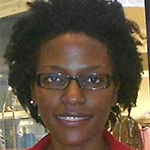 Helen Byakwaga, M.B., Ch.B, M.A.S, PhD is a postdoctoral fellow at Mbarara University of Science and Technology. Her primary research interest is investigating biological markers of morbidity and mortality in HIV-infected individuals. She has recently completed a two-year clinical research fellowship at UCSF through the Training in Clinical Research (TICR) Program sponsored by an NIH-sponsored D43 Award.
Helen Byakwaga, M.B., Ch.B, M.A.S, PhD is a postdoctoral fellow at Mbarara University of Science and Technology. Her primary research interest is investigating biological markers of morbidity and mortality in HIV-infected individuals. She has recently completed a two-year clinical research fellowship at UCSF through the Training in Clinical Research (TICR) Program sponsored by an NIH-sponsored D43 Award.
Project
Translational Research of Kaposi's Sarcoma in East Africa
Dr. Byakwaga's GloCal project will focus on translational research in East Africa to test several hypotheses related to systemic immune activation and inflammation and Kaposi's sarcoma (KS). Although the discovery of the causative viral agent for KS, human herpesvirus 8 (HHV-8), was a major triumph for the field, this virus is not a sufficient factor for KS. In fact, other than HHV-8 and CD4+ T cell lymphopenia, the mechanisms responsible for the development of KS are poorly understood. Finding additional causes/mechanisms for KS would provide additional targets for disease prevention and therapy. This is particularly important in sub-Saharan Africa, where not only is KS incidence high, but KS-associated morbidity and mortality are substantial, even in the antiretroviral therapy era. The specific aims of this project will be to: 1) Evaluate the relationship between systemic immune activation and the occurrence of KS in untreated HIV-infected adults in Uganda; and 2) Determine whether systemic immune activation at the time of antiretroviral therapy initiation is related to the development of KS-associated immune reconstitution inflammatory syndrome (IRIS).
Mentors: Dr. Jeffrey Martin (UCSF), Dr. Peter Hunt (UCSF), Dr. Conrad Muzoora (MUST)
Hendry R. Sawe, Muhimbili University of Health and Allied Sciences (MUHAS)
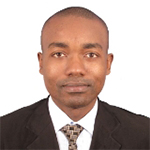 Hendry Sawe, MD, MMED, MBA, graduated from the first class of eight emergency medicine specialists in Tanzania, having completed his post-graduate training in July 2013 at Muhimbili University of Health and Allied Sciences (MUHAS). He is currently the co-leader of the Emergency Medicine research and training programs at Muhimbili National Hospital, in Dar es Salaam, which has the only Emergency medicine residency training program in Tanzania. Dr. Sawe's research interests include HIV emergencies, HIV testing and counseling practices, sickle cell disease, emergency care systems development, emergency ultrasound, trauma, critical care, and medical education. His is also a section editor and author of several chapters for the Oxford UP AFEM Handbook for Acute and Emergency Care. He serves as president of the Emergency Medicine Association of Tanzania (EMAT), the national professional association charged with disseminating emergency care in Tanzania, and also serves as vice-president of the African Federation for Emergency Medicine (AFEM). Both of these professional bodies promote research in emergency care systems across Africa as one of the pillars for developing the specialty of emergency medicine.
Hendry Sawe, MD, MMED, MBA, graduated from the first class of eight emergency medicine specialists in Tanzania, having completed his post-graduate training in July 2013 at Muhimbili University of Health and Allied Sciences (MUHAS). He is currently the co-leader of the Emergency Medicine research and training programs at Muhimbili National Hospital, in Dar es Salaam, which has the only Emergency medicine residency training program in Tanzania. Dr. Sawe's research interests include HIV emergencies, HIV testing and counseling practices, sickle cell disease, emergency care systems development, emergency ultrasound, trauma, critical care, and medical education. His is also a section editor and author of several chapters for the Oxford UP AFEM Handbook for Acute and Emergency Care. He serves as president of the Emergency Medicine Association of Tanzania (EMAT), the national professional association charged with disseminating emergency care in Tanzania, and also serves as vice-president of the African Federation for Emergency Medicine (AFEM). Both of these professional bodies promote research in emergency care systems across Africa as one of the pillars for developing the specialty of emergency medicine.
Project
Clinical epidemiology of patients with chronic disease presenting to an urban emergency department in Tanzania: Experience from Sickle Cell Disease or HIV
Dr. Sawe's research addresses emergency care of acute episodes of illness within major chronic disease, focusing on sickle cell disease (SCD) and HIV. The opening of a full capacity high-volume emergency department (ED) at Muhimbili National Hospital in Dar es Salaam, Tanzania has provided the opportunity for early stabilization and resuscitation of acutely ill patients. This project will document the clinical presentations, diagnostic strategies, treatment and outcomes of ED visits associated with SCD and HIV. The HIV component of the project will also document current (clinically-driven) emergency department HIV testing strategies to help evaluate the appropriateness of implementing an opt-in or opt-out HIV screening program in this high volume emergency department. A similar point-of-care testing strategy will be developed and evaluated for SCD. This project will inform the development of protocols to better identify high-risk patients and to facilitate early and systematic management of SCD or HIV in the emergency setting.
Mentors: Dr. Teri Reynolds (UCSF), Dr. Julie Makani (MUHAS), Dr. Lee Alan Wallis (University of Cape Town)
Isabella Epiu, Makerere University
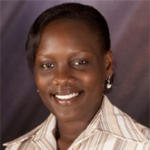 Isabella Epiu, MBChB (MaCHS), lives and works in Kampala, Uganda. She is an Anesthesiologist and Clinical Research Fellow in the Department of Anaesthesia at Makerere University College of Health Sciences in Kampala and is passionate about creating strategies to reduce maternal and child mortality through safe anesthesia and safe surgery. She is currently working on a study which centers around the challenges of anesthesia care in developing countries, during which she has evaluated facilities across East Africa, showing that the lack of safe anesthesia is underreported and is undoubtedly a major contributing factor to morbidity and mortality across sub-Saharan Africa. Her next program is to evaluate all facilities at the regional and district level in Uganda and instigate improvements and standards which will directly impact maternal and infant mortality in this setting.
Isabella Epiu, MBChB (MaCHS), lives and works in Kampala, Uganda. She is an Anesthesiologist and Clinical Research Fellow in the Department of Anaesthesia at Makerere University College of Health Sciences in Kampala and is passionate about creating strategies to reduce maternal and child mortality through safe anesthesia and safe surgery. She is currently working on a study which centers around the challenges of anesthesia care in developing countries, during which she has evaluated facilities across East Africa, showing that the lack of safe anesthesia is underreported and is undoubtedly a major contributing factor to morbidity and mortality across sub-Saharan Africa. Her next program is to evaluate all facilities at the regional and district level in Uganda and instigate improvements and standards which will directly impact maternal and infant mortality in this setting.
Project
A comprehensive review of the capacity of district and regional referral hospitals in Uganda to provide safe anesthesia for obstetric patients
Dr. Epiu will conduct a comprehensive countrywide assessment of the hospitals in Uganda, to evaluate factors which contribute to maternal and infant mortality. This will include the effect of HIV on maternal and infant mortality, provision of safe anesthesia and safe surgery. While the exact extent of the problem is not documented in Uganda, poor infrastructure is a recognized cause of the high rates of peri-operative morbidity and mortality associated with conditions such as hemorrhage, obstructed labor, uterine rupture and hypertensive disease in pregnancy, in this setting. This study will then identify cost-effective and locally appropriate strategies to improve healthcare and improve outcomes during labor and the post-natal period. The specific needs of HIV mothers in this setting will be incorporated into this, so as to minimize complications in this important subgroup. This study will provide a baseline information for surgical and anesthesia development in Uganda. The ultimate goal is to use this data to drive policy and protocols implementing the exact changes needed, where they are needed.
Mentors: Dr. Gerald Dubowitz ( UCSF), Dr. J. V. B. Tindimwebwa (Makerere University), Dr. Harriet Mayanja-Kizza (Makerere University)
Juliana Haber, UC Davis
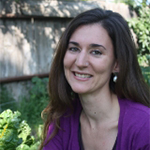 Juliana Haber, BS, is a predoctoral fellow from the Program for International and Community Nutrition at UC Davis. As member of Lindsay Allen's lab at the Western Human Nutrition Research Center, USDA, her graduate research focuses biochemical micronutrient analyses in human milk and the relationship between maternal dietary intake during pregnancy and lactation and breast milk nutrient composition. Ms. Haber's research experiences include laboratory biochemical analysis at the Western Human Nutrition Research Center, dietary intake assessment at the International Center for Diarrheal Disease Research, Bangladesh (icddr,b), and the Stanford Prevention Research Center, and involvement in a qualitative assessment of the neighborhood food environment of low income urban areas in Northern California at UC Berkeley. She intends to pursue research that focuses on the impact of diet on health in relation to food systems and equality of access.
Juliana Haber, BS, is a predoctoral fellow from the Program for International and Community Nutrition at UC Davis. As member of Lindsay Allen's lab at the Western Human Nutrition Research Center, USDA, her graduate research focuses biochemical micronutrient analyses in human milk and the relationship between maternal dietary intake during pregnancy and lactation and breast milk nutrient composition. Ms. Haber's research experiences include laboratory biochemical analysis at the Western Human Nutrition Research Center, dietary intake assessment at the International Center for Diarrheal Disease Research, Bangladesh (icddr,b), and the Stanford Prevention Research Center, and involvement in a qualitative assessment of the neighborhood food environment of low income urban areas in Northern California at UC Berkeley. She intends to pursue research that focuses on the impact of diet on health in relation to food systems and equality of access.
Project
Associations between maternal diet, maternal nutrient status, and effects of lipid-based nutrient supplements on breast milk nutrient composition and infant status of selected vitamins in Guatemala
The relationship between maternal dietary intake and breast milk nutrient composition remains poorly characterized. The primary goals of Ms. Haber's research are to assess if breast milk quality is a comprehensive, relatively non-invasive indicator of population nutritional status and reflects fluctuations in nutrient status caused by diet and seasonality. To this end, Ms. Haber will examine the impact of both acute dietary intake and longer term seasonal variations in diet on breast milk nutrient composition in Guatemalan women. Secondary goals include evaluating the relative impact of maternal nutritional status versus recent dietary intake on breast milk micronutrient composition, and evaluating the impact of a maternal lipid based nutrient supplement on infant nutrient intakes. The study will be conducted in Guatemala in collaboration with the Centro de Estudios en Sensoriopatías, Senectud e Impedimentos y Alteraciones Metabólicas (CeSSIAM) and Universidad del Valle de Guatemala (UVG).
Mentors: Dr. Lindsay Allen (UCD, USDA, WHNRC), Dr. Noel Solomons (CeSSIAM), Dr. Monica Orozco (UVG, CeSSIAM)
Kendra Byrd, UC Davis
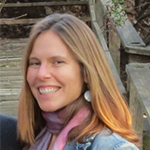 Kendra Byrd, MSc, grew up in agriculturally-rich northern California, surrounded by family members who made their living growing fruit and nuts. This agricultural upbringing led to a desire to study the science of nutrition, and Ms. Byrd is currently a doctoral student at the University of California, Davis in the Program for International and Community Nutrition. Her primary research interests are maternal and child health in low-income countries, in particular through the optimization of iron levels. Prior to coming to UC Davis, Kendra was working with the UC Cooperative Extension providing nutrition education to low-income communities. She also served in Peace Corps Uganda from 2007-2009. In the future, Kendra hopes to continue her nascent career in global health research, improving health outcomes through improved maternal and child nutrition.
Kendra Byrd, MSc, grew up in agriculturally-rich northern California, surrounded by family members who made their living growing fruit and nuts. This agricultural upbringing led to a desire to study the science of nutrition, and Ms. Byrd is currently a doctoral student at the University of California, Davis in the Program for International and Community Nutrition. Her primary research interests are maternal and child health in low-income countries, in particular through the optimization of iron levels. Prior to coming to UC Davis, Kendra was working with the UC Cooperative Extension providing nutrition education to low-income communities. She also served in Peace Corps Uganda from 2007-2009. In the future, Kendra hopes to continue her nascent career in global health research, improving health outcomes through improved maternal and child nutrition.
Project
Understanding associations between infection, inflammation, and iron status in infants in rural, western Kenya
Adequate iron levels in infants and children are important for proper growth and development, but too much iron in the body has the potential to feed pathogens. Therefore, the policies regarding iron supplementation in developing countries remain in flux. The proposed project will investigate both how inflammatory markers and specific genes influence iron levels in infants living in western Kenya. The information garnered from this project will shine light onto the issue of why iron supplementation sometimes alleviates anemia, and why other times it makes children sick. In the future, policy makers and nutrition scientists will be able to insure infants and children have proper iron levels through a combination of nutrition programs, illness prevention, and the recognition that some high or low iron levels are normal dependent on genotype.
Mentors: Dr. Christine Stewart (UC Davis), Dr. Samuel Njenga (KEMRI)
Lilliam Pinzón, UC San Francisco
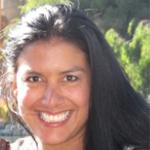 Dr. Lilliam M Pinzón, DDS, MS, MPH, holds a Doctorate of Dental Surgery from the University of Antioquia, Colombia; a Master's of Science with a specialization in dental materials from the University of Texas, Houston; and a Master's of Public Health with focus in Health Policy and Management from the University of California, Berkeley. Dr. Pinzón obtained a Postdoctoral Fellowship and advanced training in clinical research at the University of California, San Francisco (UCSF). She possesses more than 13 years of experience in laboratory and clinical translational research in the U.S and was appointed in 2009 as an Assistant Adjunct Professor at UCSF. Dr. Pinzón's work in clinical translational research focuses on pediatrics, public health, and dental materials in order to improve oral health for underserved populations. She is currently the recipient of a National Institute of Health/National Institute of Dental Cranio-facial Research (NIH/NIDCR) K23 grant that allows her to work with community clinics that treat underserved pediatric populations (i.e., Latino, African American, and Asian). She obtained the UCSF Global Oral Health Pair Fellowship with her student Ivy Fua last year and they are currently working in an international study in Colombia.
Dr. Lilliam M Pinzón, DDS, MS, MPH, holds a Doctorate of Dental Surgery from the University of Antioquia, Colombia; a Master's of Science with a specialization in dental materials from the University of Texas, Houston; and a Master's of Public Health with focus in Health Policy and Management from the University of California, Berkeley. Dr. Pinzón obtained a Postdoctoral Fellowship and advanced training in clinical research at the University of California, San Francisco (UCSF). She possesses more than 13 years of experience in laboratory and clinical translational research in the U.S and was appointed in 2009 as an Assistant Adjunct Professor at UCSF. Dr. Pinzón's work in clinical translational research focuses on pediatrics, public health, and dental materials in order to improve oral health for underserved populations. She is currently the recipient of a National Institute of Health/National Institute of Dental Cranio-facial Research (NIH/NIDCR) K23 grant that allows her to work with community clinics that treat underserved pediatric populations (i.e., Latino, African American, and Asian). She obtained the UCSF Global Oral Health Pair Fellowship with her student Ivy Fua last year and they are currently working in an international study in Colombia.
Project
Evaluation of dental restorations at the Binational Free-Clinic in Tijuana-Mexico
During her GloCal Health Fellowship, Dr. Pinzón will implement a clinical translational study comparing two types of dental restorations at a binational free clinic in Tijuana, Mexico. The population evaluated through this study includes high cavity-risk patients from lower socioeconomic status households in the area. The study will facilitate evaluation of the atraumatic restorative treatment (ART) technique that might show efficacy in preventing new and recurrent cavities. Additionally, the study will provide an evaluation of the remineralization process of cavity lesions restored with ART in comparison with amalgam treatments. This fellowship project will allow Dr. Pinzón to obtain deeper knowledge and experience working on international clinical studies, and better understand the oral health needs to which the vulnerable population of Tijuana, Mexico is exposed. This, in turn, will help her initiate further studies.
Mentors: Dr. Caroline Shiboski (UCSF), Dr. Miguel Alberto Zamudio (UABC), Dr. Ellen Beck (UCSD)
Linnet G.K. Ongeri, Kenya Medical Research Institute (KEMRI)
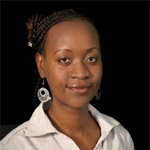 Linnet Ongeri, MBBS, MMed, is an early career mental health researcher working in the Centre for Clinical Research at the Kenya Medical Research Institute (CCR, KEMRI). Her background training is in the specialty of Psychiatry, and her interests are in maternal depression, substance abuse and health systems strengthening. Dr. Ongeri's dissertation research focused on personality disorders among substance abusers admitted in drug rehabilitation centers in Kenya. She has recently completed work on a household survey focusing on malaria, immunity and depression in Western Kenya, and is the Principal investigator on an ongoing study investigating postpartum depression among women residing in urban resource poor settings in Nairobi. Dr. Ongeri is also the co-investigator in a pilot random controlled trial on interpersonal therapy for HIV positive women facing gender based violence in Western Kenya. From her clinical and research work, it has become evident that resources channeled towards mental health care are scarce despite the ever-growing need. Dr. Ongeri hopes to have an impact on the lives of the mentally ill by designing culturally and regionally appropriate models for integrating mental health care in primary health care at community level.
Linnet Ongeri, MBBS, MMed, is an early career mental health researcher working in the Centre for Clinical Research at the Kenya Medical Research Institute (CCR, KEMRI). Her background training is in the specialty of Psychiatry, and her interests are in maternal depression, substance abuse and health systems strengthening. Dr. Ongeri's dissertation research focused on personality disorders among substance abusers admitted in drug rehabilitation centers in Kenya. She has recently completed work on a household survey focusing on malaria, immunity and depression in Western Kenya, and is the Principal investigator on an ongoing study investigating postpartum depression among women residing in urban resource poor settings in Nairobi. Dr. Ongeri is also the co-investigator in a pilot random controlled trial on interpersonal therapy for HIV positive women facing gender based violence in Western Kenya. From her clinical and research work, it has become evident that resources channeled towards mental health care are scarce despite the ever-growing need. Dr. Ongeri hopes to have an impact on the lives of the mentally ill by designing culturally and regionally appropriate models for integrating mental health care in primary health care at community level.
Project
Mental Health Needs Assessment in Kaloleni Sub County
Dr. Ongeri's study project site is the Kaloleni sub-county of Kenya, a coastal region near Mombasa. The care gap in Kaloleni is enormous; it has one of the worst health indicators in Kenya and no mental health services at all. Dr. Ongeri plans to use a mixed methods approach to assess for mental health care needs of the residents of Kaloleni. Her overall objectives are: i) to establish the prevalence of depression, generalized anxiety disorder (GAD), substance abuse/dependence and PTSD among patients presenting to the Mariakani district hospital in Kaloleni, Kenya and ii) to achieve a qualitative understanding of mental health care needs among patients presenting to the Mariakani district hospital along the following domains: (1) symptoms of depression and anxiety, PTSD and substance abuse/dependence; (2) social/occupational functioning; (3) barriers to mental health treatment and (4) preferences for mental health treatment content and delivery. She hopes to use the data from this study to apply for pilot funding to support a trial of an integrated mental health treatment for primary care patients in the Kaloleni Sub-County.
Mentors: Dr. Susan Meffert (UCSF), Dr. Elizabeth Bukusi (KEMRI), Dr. Shari Dworkin (UCSF)
Miguel Pinedo, UC San Diego
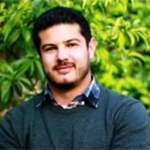 Miguel Pinedo, MPH, is currently a PhD Candidate in Global Public Health at the University of California, San Diego. He previously earned his Master in Public Health in Health and Social Behavior from the University of California, Berkeley with a focus on migration and health. Mr. Pinedo also received training in global health, Geographic Information Systems (GIS) technology, and spatial analysis through the UCSF-UC Berkeley Global Health Framework Fellowship. Mr. Pinedo has more than 6 years of experience working in public health research, contributing to various investigations and publications related to the health of vulnerable and migrant populations residing in the United States and Latin America. As a doctoral student, Mr. Pinedo has conducted research examining migration-related factors associated with substance use among indigenous migrants from Mexico and California. He has also been the recipient of the AIDS International Training Research Fellowship, where he examined factors associated with HIV risk perception among deported Mexican injection drug users residing in Tijuana, Mexico. His current interests include investigating social and structural conditions of deportation that influence HIV risk among deportees residing in the US-Mexico border region.
Miguel Pinedo, MPH, is currently a PhD Candidate in Global Public Health at the University of California, San Diego. He previously earned his Master in Public Health in Health and Social Behavior from the University of California, Berkeley with a focus on migration and health. Mr. Pinedo also received training in global health, Geographic Information Systems (GIS) technology, and spatial analysis through the UCSF-UC Berkeley Global Health Framework Fellowship. Mr. Pinedo has more than 6 years of experience working in public health research, contributing to various investigations and publications related to the health of vulnerable and migrant populations residing in the United States and Latin America. As a doctoral student, Mr. Pinedo has conducted research examining migration-related factors associated with substance use among indigenous migrants from Mexico and California. He has also been the recipient of the AIDS International Training Research Fellowship, where he examined factors associated with HIV risk perception among deported Mexican injection drug users residing in Tijuana, Mexico. His current interests include investigating social and structural conditions of deportation that influence HIV risk among deportees residing in the US-Mexico border region.
Project
Circular migration and HIV transmission in Mexico
Though Mexican migration to the US has been linked to HIV, the current US-Mexico migration dynamics are changing quickly. In 2012, US deportations reached record numbers with more than 409,000 foreigners being deported. Mexican nationals account for the majority of deportees (>75%). The US-bordering city of Tijuana receives the highest proportion of deportees and has a dynamic migrant population: ~50% of its 1.6 million residents are migrants. A small body of data suggests that Mexican migrants who return to Mexico either voluntarily or as a result of deportation are at elevated risk for HIV. After returning migrants may face multiple psychological, emotional, and economic stressors that influence their mental and physical health, including HIV vulnerability. Little is known about the health vulnerabilities of deported Mexican migrants. Circular migrants (e.g., migrants who return to their community of origin after re-settling in their migrant destination) in Tijuana who are HIV-positive have the potential introduce HIV to their communities of origin via their sexual and drug use behaviors with members of their community of origin. Further, the context (e.g., reasons, experiences, decision-making processes) under which circular migrants engage in HIV risk behaviors in their community of origin is poorly understood. The study will employ mixed methods to better understand and examine correlates of circular migration and HIV risk behaviors in Tijuana and communities of origin among migrants currently residing in Tijuana, Mexico.
Mentors: Dr. Victoria Ojeda (UCSD), Dr. José Luis Burgos (UCSD), Dr. Gudelia Rangel (COLEF)
Milagros Becerra Ramirez, UC San Diego
 Milagros Becerra Ramirez, MD is a bi-lingual and bicultural physician. She received her Medical Degree at the Universidad Autonoma de Baja California (UABC) and has experience working with underserved populations in Mexico at the Tijuana's General Hospital and the Health Frontiers in Tijuana Student Run Free Clinic (HFiT). Dr. Becerra serves as a volunteer faculty member for UCSD and UABC for students involved in HFiT, and has completed clinical trainings in HIV medicine at the Tijuana's General Hospital, HIV Outpatient Government Clinic in Tijuana (CAPASITS) and at the UCSD Owen Clinic. Her primary objective is to develop a career in academic medicine and to study the implementation of evidence based HIV prevention interventions among vulnerable populations such as female sex workers and people who inject drugs. She is also interested in improving the delivery of primary care services for people living with HIV in resource constrained settings.
Milagros Becerra Ramirez, MD is a bi-lingual and bicultural physician. She received her Medical Degree at the Universidad Autonoma de Baja California (UABC) and has experience working with underserved populations in Mexico at the Tijuana's General Hospital and the Health Frontiers in Tijuana Student Run Free Clinic (HFiT). Dr. Becerra serves as a volunteer faculty member for UCSD and UABC for students involved in HFiT, and has completed clinical trainings in HIV medicine at the Tijuana's General Hospital, HIV Outpatient Government Clinic in Tijuana (CAPASITS) and at the UCSD Owen Clinic. Her primary objective is to develop a career in academic medicine and to study the implementation of evidence based HIV prevention interventions among vulnerable populations such as female sex workers and people who inject drugs. She is also interested in improving the delivery of primary care services for people living with HIV in resource constrained settings.
Project
Barriers to accessing HIV prevention services and the role of untreated STIs among women who inject drugs in Tijuana's Zona Norte.
HIV infection continues to be a worldwide health problem, especially in developing countries. Recent studies have shown an evolving HIV epidemic among marginalized populations in the Northern Mexico-U.S. border concentrated among injection drug users (IDUs) and female sex workers. Although Mexico has a low prevalence of HIV overall (≈ 0.3%) (CENSIDA statistics), HIV prevalence among FSWs in Tijuana is significantly higher than the general population and has been increasing over the past decade (from <1% in the 1990s to nearly 6% in 2006), and is especially high among women with IDU (IDUW) (~12%). This study will help obtain data related to barriers in access to care and HIV/STI prevention services. It will estimate the prevalence of untreated STI's among women who inject drugs to determine the role they play in the acquisition of HIV among this population.
Mentors: Dr. Victoria Ojeda (UCSD), Dr. Jose Luis Burgos (UCSD), Dr. Dr. Adriana Carolina Vargas Ojeda (UABC)
Monica Ulibarri, UC San Diego
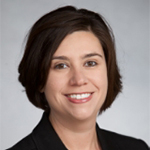 Monica Ulibarri, PhD, MA, is a licensed clinical psychologist and Assistant Professor in the Department of Psychiatry at the University of California, San Diego (UCSD). Her research focuses on HIV prevention in resource poor settings with highly vulnerable populations such as female sex workers (FSWs) and injection drug users, with an emphasis on how gender-based violence (e.g., intimate partner violence, history of child sexual abuse), and relationship dynamics, influence substance use, mental health, and HIV risk. Dr. Ulibarri currently has a NIDA K01 Mentored Research Scientist Development Award examining individual- and couples-level correlates of HIV drug and sex risk behaviors among drug-using FSWs and their main, non-commercial, male partners in Tijuana, Mexico. Dr. Ulibarri's long term professional goal is to become a leading investigator in the area of HIV prevention, substance use, and gender-based violence among heterosexual couples and other highly vulnerable populations along the Mexico-U.S. border and globally.
Monica Ulibarri, PhD, MA, is a licensed clinical psychologist and Assistant Professor in the Department of Psychiatry at the University of California, San Diego (UCSD). Her research focuses on HIV prevention in resource poor settings with highly vulnerable populations such as female sex workers (FSWs) and injection drug users, with an emphasis on how gender-based violence (e.g., intimate partner violence, history of child sexual abuse), and relationship dynamics, influence substance use, mental health, and HIV risk. Dr. Ulibarri currently has a NIDA K01 Mentored Research Scientist Development Award examining individual- and couples-level correlates of HIV drug and sex risk behaviors among drug-using FSWs and their main, non-commercial, male partners in Tijuana, Mexico. Dr. Ulibarri's long term professional goal is to become a leading investigator in the area of HIV prevention, substance use, and gender-based violence among heterosexual couples and other highly vulnerable populations along the Mexico-U.S. border and globally.
Project
Cultural adaptation of a couple-based HIV prevention for FSWs and their non-commercial partners in Mexico
Dr. Ulibarri's GloCal project stems from her K01 work and is the next step in working towards conducting a randomized control trial to test the efficacy of a couples-based HIV prevention intervention. Dr. Ulibarri will culturally adapt an existing theory-based HIV prevention intervention for drug-using couples in Kazakhstan to the needs of drug-using FSWs and their main, non-commercial partners in Tijuana, Mexico. Couples-based interventions may be more successful in reducing sexual and drug-related HIV/STI risk behaviors compared to individual-based approaches. However, no research to date has investigated the possibility of designing or implementing a couples-based program to prevent HIV/STI transmission among drug-involved FSWs and their non-commercial partners. This represents a new and substantive departure from the status quo of individual-based interventions for FSWs.
Mentors: Thomas Patterson (UCSD), Gudelia Rangel (COLEF), Nabila El-Bassel (Columbia University)
Natalie Ferraiolo, UC San Diego
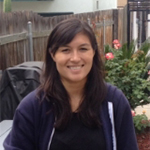 Natalie Ferraiolo, BA, is a rising senior medical student at the UC San Diego School of Medicine. Her research career began as a Howard Hughes Medical Institute Fellow as an undergraduate at Amherst College and continued at Massachusetts General Hospital doing translational lung cancer research. She had her first major global health experience in South Africa where she volunteered at an HIV clinic outside of Cape Town. She continued to develop her interest in global public health throughout medical school, volunteering at clinics in Tijuana and throughout Baja, Mexico, which gave her the opportunity to learn about health issues faced by border populations. She was also manager of the Psychiatry clinic at the UCSD Student-Run Free Clinic, where she saw the barriers to mental health care access among immigrants in San Diego. In the future, she hopes to pursue a combined Psychiatry-Family Medicine residency and continue to work with border populations.
Natalie Ferraiolo, BA, is a rising senior medical student at the UC San Diego School of Medicine. Her research career began as a Howard Hughes Medical Institute Fellow as an undergraduate at Amherst College and continued at Massachusetts General Hospital doing translational lung cancer research. She had her first major global health experience in South Africa where she volunteered at an HIV clinic outside of Cape Town. She continued to develop her interest in global public health throughout medical school, volunteering at clinics in Tijuana and throughout Baja, Mexico, which gave her the opportunity to learn about health issues faced by border populations. She was also manager of the Psychiatry clinic at the UCSD Student-Run Free Clinic, where she saw the barriers to mental health care access among immigrants in San Diego. In the future, she hopes to pursue a combined Psychiatry-Family Medicine residency and continue to work with border populations.
Project
Depression Among Deportees Undergoing Gang Tattoo Removal in Tijuana
Given the significant increase in U.S. deportation of criminal immigrants, including those with gang affiliations and drug charges, the fate of gang-affiliated deportees is becoming a key binational public health issue. Both deportations and tattoos have been associated with depression. Her study will be embedded in Dr. Ojeda's GloCal study: Reducing HIV Risk and Social Stigma via a Gang-Tattoo Removal Intervention for Deportees in Tijuana, assessing the mental health of the study participants. The aims are to assess for rates of depression, compare the CES-D and PHQ-9 depression scales, and examine the qualitative experiences among deportees in Tijuana undergoing gang tattoo removal. This study has the potential to support the development of tailored interventions to improve the mental health and well being of gang-affiliated deportees.
Mentors: Dr. Victoria Ojeda (UCSD), Dr. Michael Rodriguez (UCLA), Dr. Adriana Carolina Vargas Ojeda (UABC)
Silvia Verdugo, UC San Diego
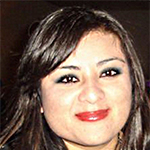 Silvia R. Verdugo, MD, MPH is a bicultural clinician who received her MD and MPH degree from Universidad Autonoma de Baja California (UABC) Mexico. She is also a former Emergency Medical Technician (EMT) and current trainer for the Mexican Red Cross with over 9 years of experience in the pre-hospital setting. She recently completed a Postdoctoral Fellowship with the AIDS International Training and Research Program (AITRP) in the Division of Global Public Health at UCSD. Dr. Verdugo's research focuses on overdose and its relation to HIV infection in the pre-hospital setting, using quantitative and geospatial analysis. She recently implemented an educational intervention for EMTs working for the Tijuana Red Cross in an effort to improve first responders' interactions with substance users who are at risk for HIV and overdose.
Silvia R. Verdugo, MD, MPH is a bicultural clinician who received her MD and MPH degree from Universidad Autonoma de Baja California (UABC) Mexico. She is also a former Emergency Medical Technician (EMT) and current trainer for the Mexican Red Cross with over 9 years of experience in the pre-hospital setting. She recently completed a Postdoctoral Fellowship with the AIDS International Training and Research Program (AITRP) in the Division of Global Public Health at UCSD. Dr. Verdugo's research focuses on overdose and its relation to HIV infection in the pre-hospital setting, using quantitative and geospatial analysis. She recently implemented an educational intervention for EMTs working for the Tijuana Red Cross in an effort to improve first responders' interactions with substance users who are at risk for HIV and overdose.
Project
The Who, Why and Where of Overdose in a Cohort of Injection Drug Users in Tijuana, Mexico.
During her GloCal Fellowship, Dr. Verdugo will assess the demographic, behavioral and environmental factors associated with reporting a recent non-fatal overdose in a cohort of injection drugs users in the Tijuana. Her research will identify factors that contribute to reporting multiple non-fatal overdoses over time, and will determine the geospatial location of these overdose events. The overall aim of Dr. Verdugo's project is to provide data that will help providers more accurately target overdose prevention and harm reduction programs and to serve as a model for prevention programs in other resource-limited settings.Mentors: Dr. Peter Davidson (UCSD), Dr. Adriana Carolina Vargas Ojeda (UABC), Dr. Karla Wagner (University of Nevada, Reno)
